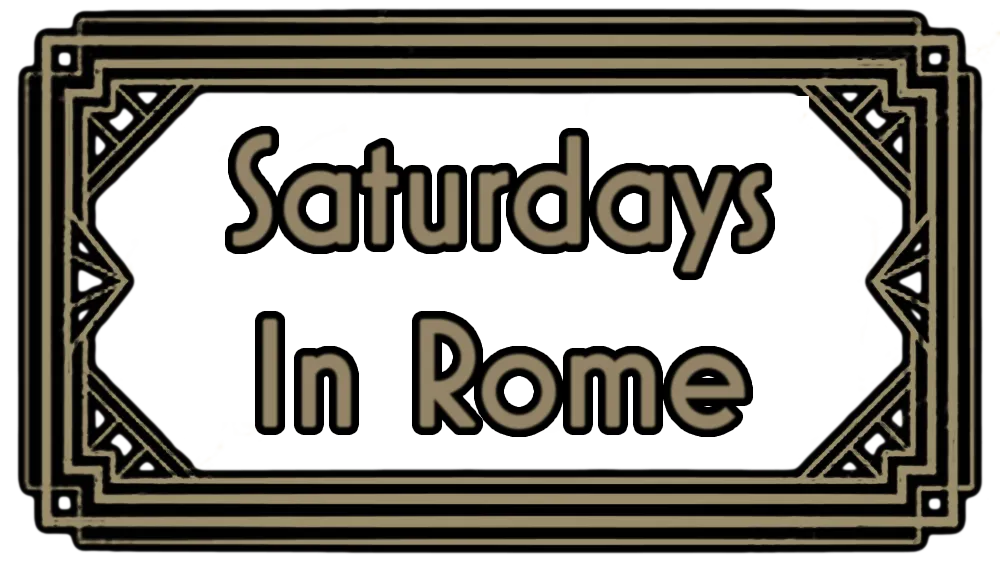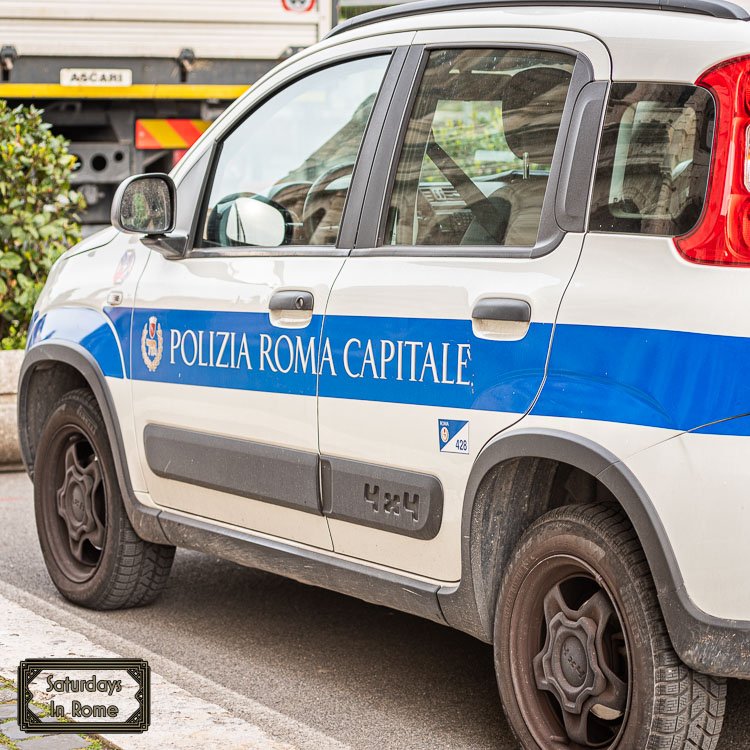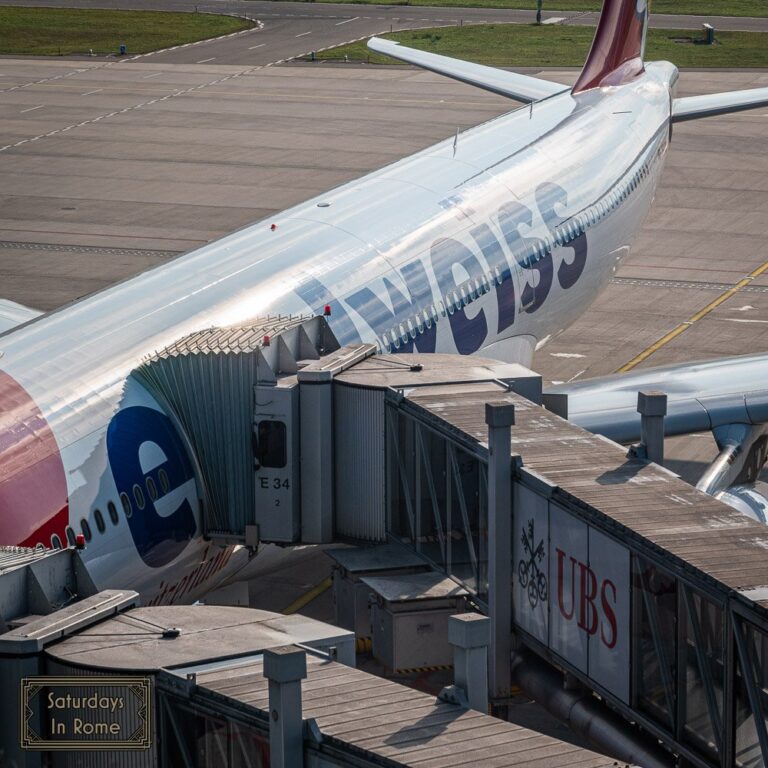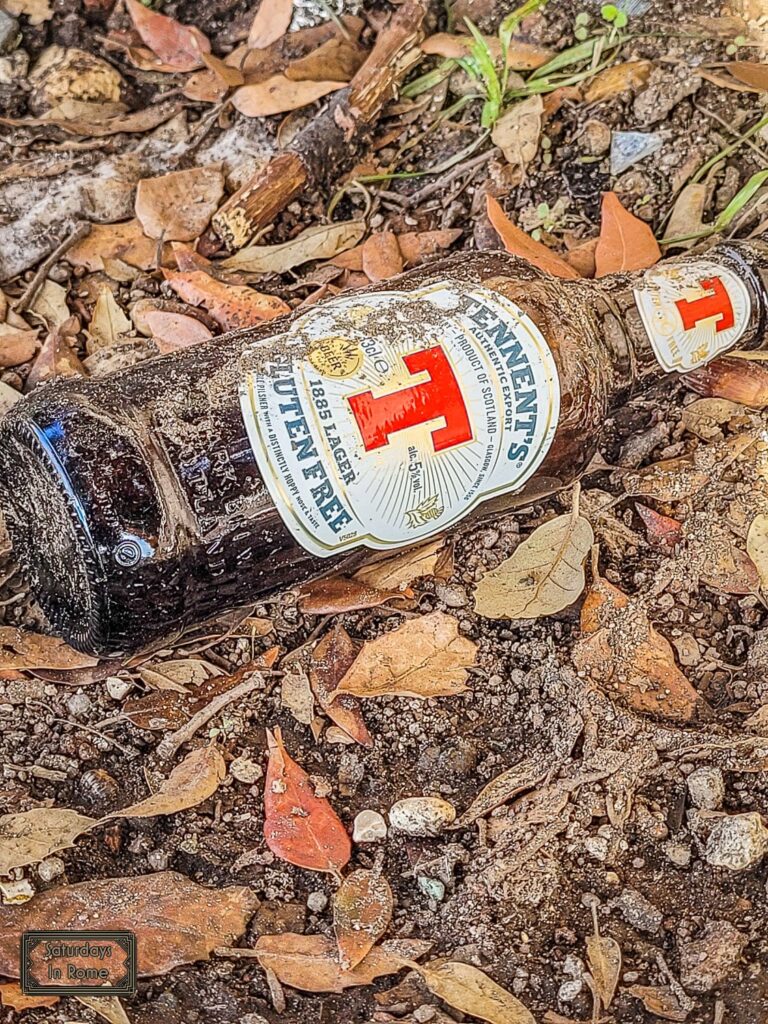The Basilica Of St. John Lateran Has Endured For Centuries
The Basilica of St. John in Lateran is one of the Seven Pilgrim Churches of Rome, Italy and serves as the seat of the Bishop of Rome, also known as The Pope.
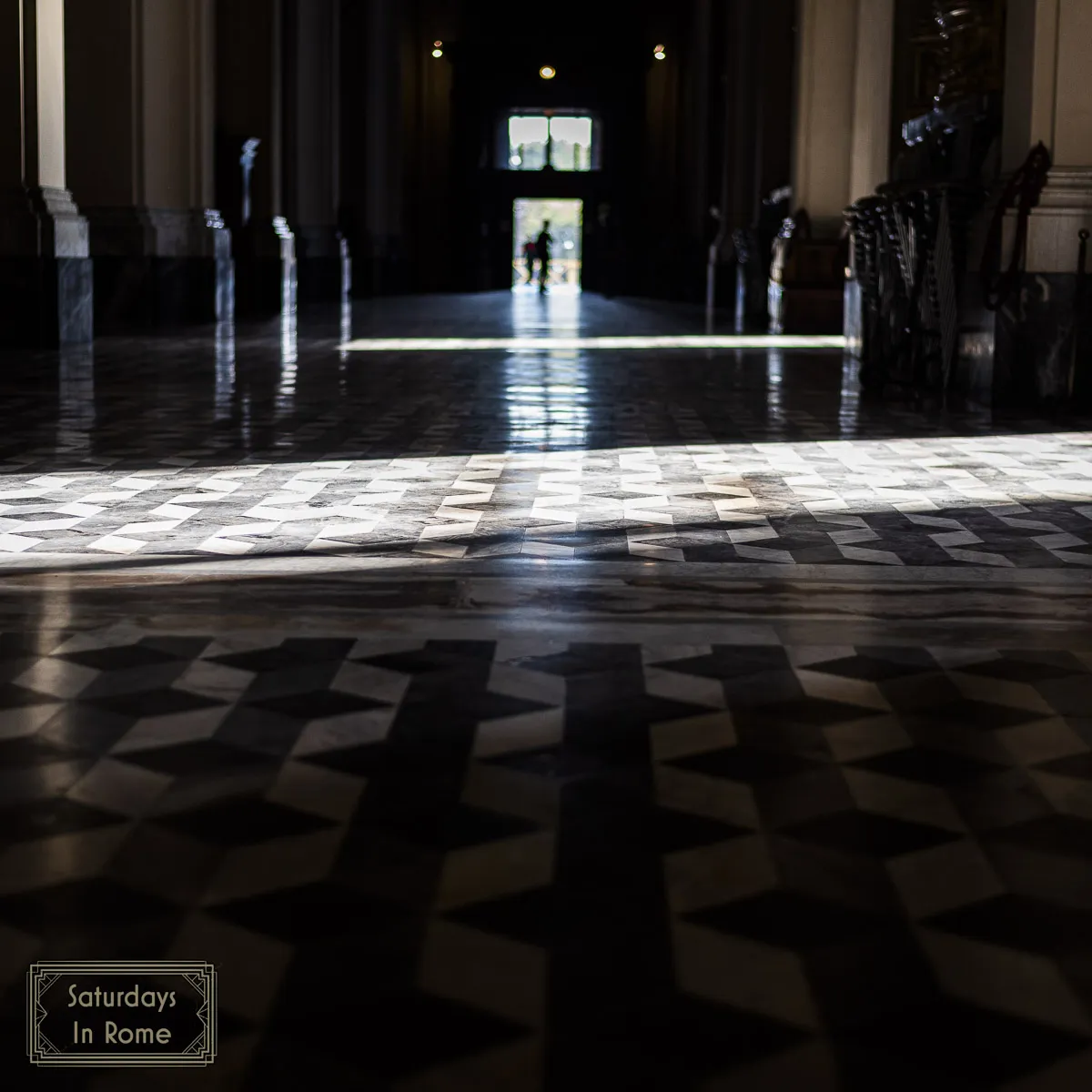
This Basilica in Rome, Italy goes my many names: Archbasilica Cathedral of the Most Holy Savior and of Saints John the Baptist and John the Evangelist in the Lateran (Arcibasilica del Santissimo Salvatore e dei Santi Giovanni Battista ed Evangelista in Laterano), the Papal Archbasilica of Saint John in Lateran (Arcibasilica Pontificia di San Giovanni in Laterano), Saint John Lateran (San Giovanni Laterano), or the Lateran Basilica (Basilica Lateranense).
Need Help Planning?
- Cheap Flights: Find The Most Affordable Flights.
- Accommodations: From 1 to 5 Stars And More.
- Car Rentals: Affordable Travel Across Italy.
- Sightseeing Tours: Explore Some Amazing Tours.
- Buying An eSIM: Stay Connected In Italy.
This post includes affiliate links.
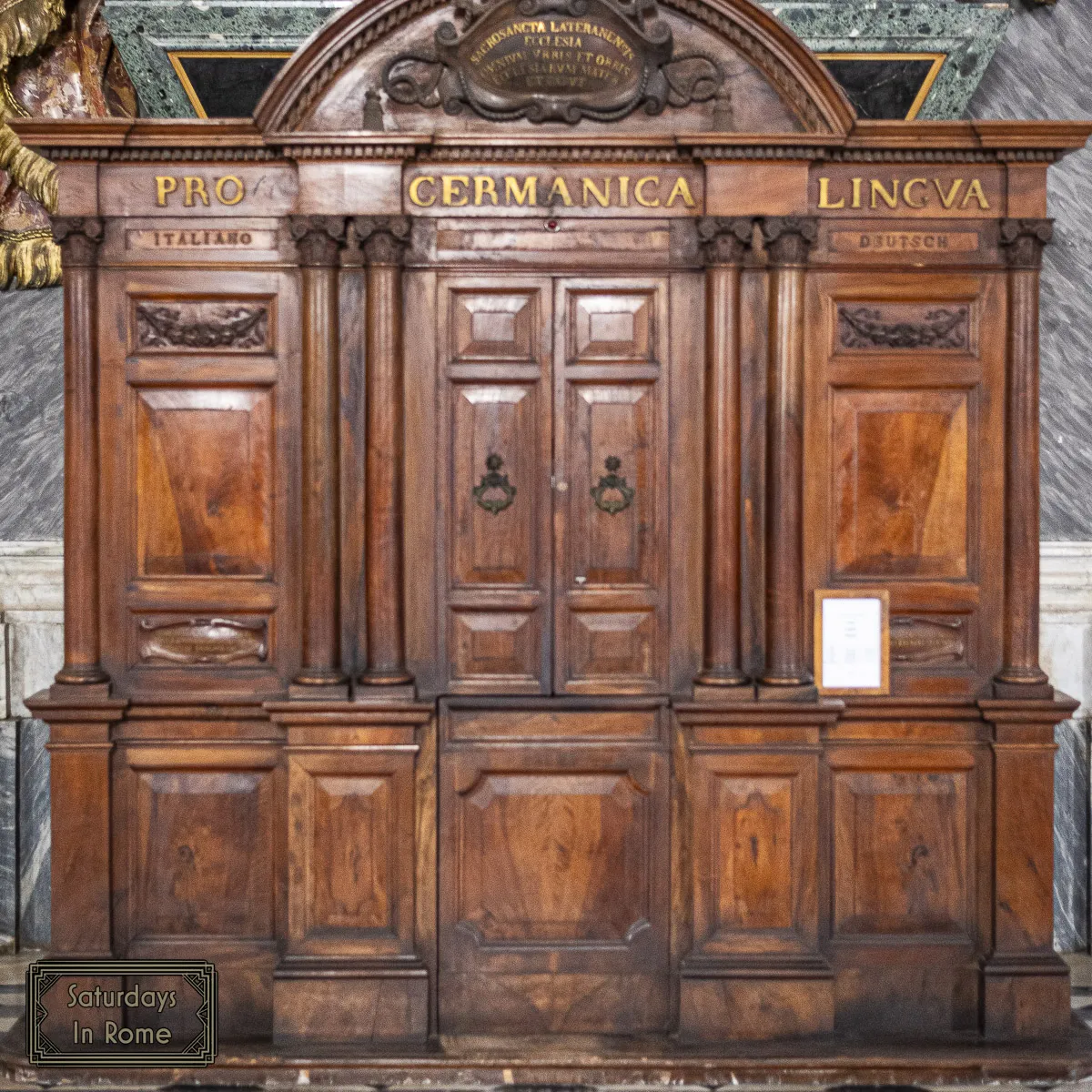
Why Is The Basilica Of St. John Lateran Important?
The San Giovanni church is outside of Vatican City, however, as properties of the Vatican, the church and its offices have a unique status from Italy, pursuant to the terms of the Lateran Treaty of 1929. In short, From the time that the country was unified in 1861 until the signing of The Lateran Treaty between the Holy See (i.e. Vatican) and the Kingdom of Italy, the situation was unclear and the influence the Vatican had over some or all of Italy was referred to as the “Roman Question”
This ambiguity became clearer on February 11, 1929 when the Lateran Treaty between the Holy See and the Kingdom of Italy was signed by Mussolini on behalf of King Victor Emmanuel III and by Cardinal Secretary of State Pietro Gasparri for Pope Pius XI. The treaty created the independent state of Vatican City.
The Seven Pilgrim Churches Of Rome
The Basilica of St. John Lateran is the oldest and most important of the four major papal basilicas, and it is also one of the Seven Pilgrim Churches of Rome. When the faithful came to Rome, being the home of the Pope and all the operations that go with it, seven churches were considered “Must See” sites. Of course St. Peter’s Basilica was first and foremost, but then San Giovanni Laterano was next on the list.
The tradition of visiting all seven churches was started back in the 16th century in order to combine conviviality and the sharing of a common religious experience through the discovery of the history of the early Saints. In the beginning, a few friends and acquaintances would gather before dawn and set out on their walk. At each church, there would be prayer, hymn singing, lunch breaks and a brief sermon. The path covers twelve miles in Rome, but if you aren’t interested in walking that far, public transportation and taxis can make the journey that much easier.
The “Classic Seven Pilgrim Churches”
The official list of the Seven Pilgrim Churches changed in 2000 when Pope John Paul II had changed the 7 by removing San Sebastian and adding as a replacement the Sanctuary of the Madonna of the Divine Love shrine. When I was looking at the events of the Jubilee 2025, I noticed they list the classic seven churches as the official version, leaving off the Sanctuary. I could not find any information online regarding the change back, so I asked the tour guide if San Sebastian is on the list, and she said it was and that Pope Benedict had made the change. I still can’t find anything official on this, so I suspect this is more regarding some of the more devout respecting the original 7 and not the updated version. Whatever the reason, if you have any information, please let me know!
In addition to the Basilica of St. John in Lateran, there are six other basilicas, and the optional non-classic sanctuary, that make up the Seven Pilgrim Churches of Rome:
- The Basilica of St. Sebastian Outside The Walls
- (Non-Classic) The Sanctuary of the Madonna of the Divine Love
The Seven Churches Visitation is a Roman Catholic tradition to visit seven churches on the evening of Maundy Thursday during Lent, but it is also done on Wednesday of Holy Week. During the Seven Churches Visitation, the faithful visit several churches to pray before the Blessed Sacrament in each church. Depending on the timing, you might encounter church services that you can either attend or wait until they are finished, before you can have a detailed tour of the church.
Restoration Of The Basilica Of St. John Lateran In Rome
The San Giovanni Church in Rome was founded in 324, it is the oldest public church in the city of Rome. Over the centuries, the church has survived several fires and an earthquake in 897. It still maintains its original form despite being reconstructed several times.
The building deteriorated during the Middle Ages and was badly damaged by two fires in the 14th century, but it was rebuilt in the late 16th century during the reign of Pope Sixtus V. The new structure’s interior was renovated in the late 17th century, and its façade was completed in 1735 under Pope Clement XII.
The Lateran Palace
The church in Rome, which is the oldest church in Europe, stands on the remains of a fort built by Spetimus Severus (not Snape) in 193 AD and after it was razed, and it was handed over by Constantine I to the Bishop of Rome, who converted the building from a palace that honored the wife of Constantine I, into a temple during the fourth century.
The Basilica of St. John Lateran continues to have an important role in history. All popes were enthroned in this church up until 1870. Today, Basilica di San Giovanni in Laterano is where the Pope, as Bishop of Rome, celebrates Holy Thursday Mass.
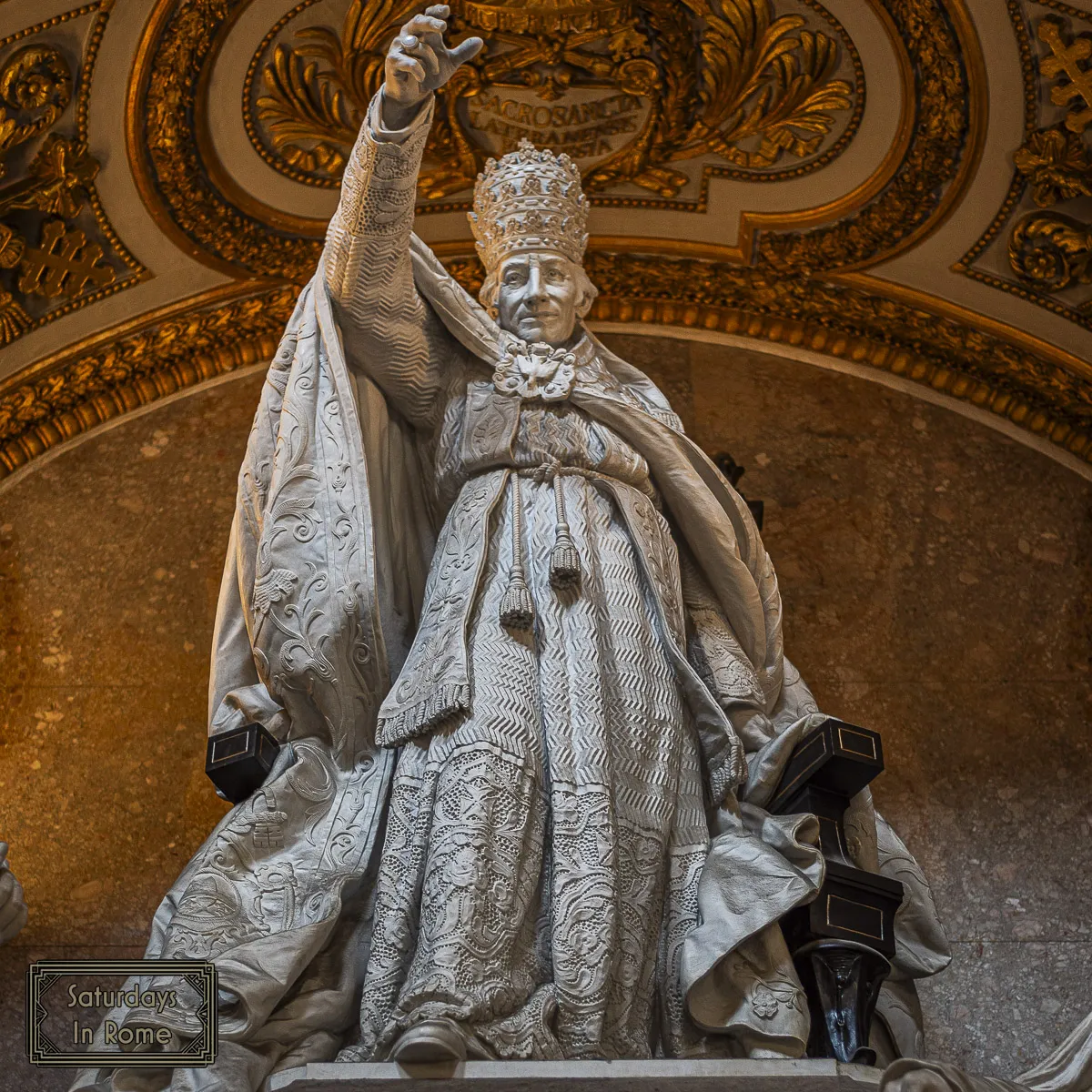
What Is In The Neighborhood Of St. John Lateran In Rome?
Important Religious Sites Nearby
This area of Rome is less touristy as compared to the area around the Vatican. From a religious perspective, the other major part of the Pilgrim Trail is right across the street from the basilica, and those are the Scala Sancta. These are so important that I will soon be having a separate post solely on this topic, but the quick version is that these are thought to be the stairs that Jesus climbed on his way to his trial during his Passion. Again, more on this later.
Not far from the basilica you can visit other monuments and churches. Among these: the Basilica of Santa Croce in Gerusalemme, which is mentioned above as one of the seven pilgrim churches in Rome and houses the relics of the Cross brought to Rome by Saint Helena. Somewhat less religious but very tranquil is Villa Celimontana, a lovely green space near the ancient Roman Colosseum and an ideal place for outdoor breakfasts and walks. Three generations of San Clemente in Rome and nearby, as is the church of Santo Stefano Rotondo, albeit a bit hidden.
San Giovanni Cultural Relevance
Although less of a tourist site and more of a cultural touchpoint, the neighborhood is connected to two of the most popular and influential Italian actors ever to grace the screen. The great actor Alberto Sordi, while born in Trastevere, has a museum in the area whose purpose is to take care of his important legacy and keep the memory of Alberto Sordi alive. Similarly, Marcello Mastroianni grew up in the San Giovanni district, although he was born outside of Rome in the Apennine Mountains.
Shopping Around San Giovanni Laterano
Beyond the Porta San Giovanni, which is one of the doors that open into the Aurelian Walls of Rome, is the beginning of one of the main shopping streets of Rome, via Appia Nuova. The large street is lined with shops for all tastes and budgets.
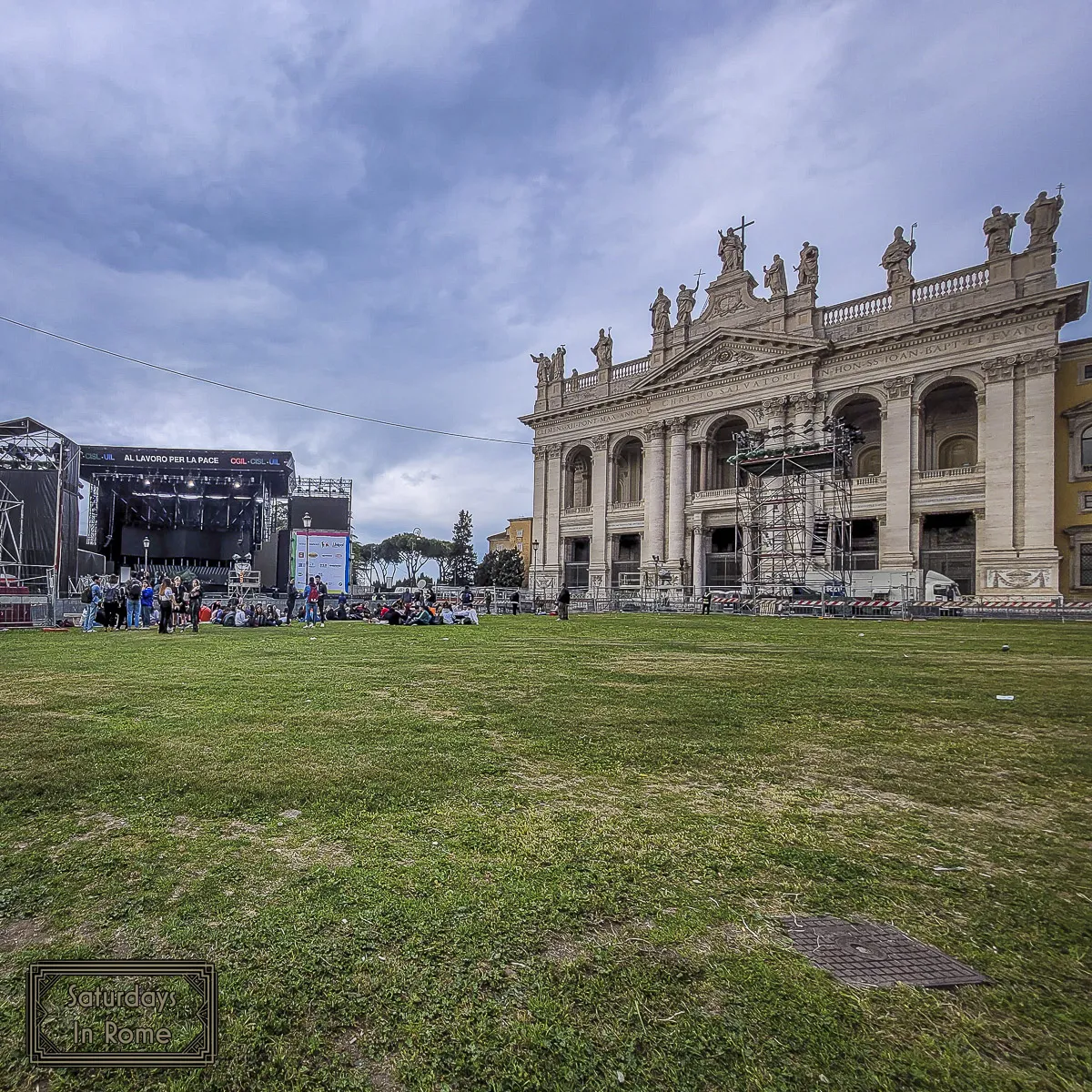
Workers’ Day In Italy
One of the fun surprises I experienced this past May was a concert held on the front lawn of the basilica. In the main square in front of the basilica on the 1st of May, there is a famous concert held annually to celebrate Workers’ Day, also known as May Day and Labor Day. In 2022, this traditional concert to celebrate Workers’ Day in Italy returned for the first time in two years because the free concert was canceled in 2020 due to the pandemic. The concert is organized by the trade unions, so it is also used as a platform to promote workers’ rights.
How To Reach The Basilica St. John Lateran?
There are a number of very good options that you can take advantage of when trying to reach the Basilica. There is a San Giovanni stop on the Metro B subway. There is a fairly big bus stop where you can take the #16, #81, #85 or the #87. There is also the #51, which takes passengers on a loop between San Giovanni and Largo Chigi, going through Piazza Venezia and by the Colosseum.
Is St. John Lateran Free?
It is free to see the basilica in all its glory. The church is open from 7:00AM to 6:30PM every day.
Other Amazing Rome Sites You Should Visit
If you enjoyed learning more about the Basilica of St. John Lateran and you are looking for some more fantastic and beautiful sites in Rome, you should check out these posts:
- Finding A Very Small Church In Rome.
- Three Generations Of San Clemente In Rome.
- Experience Egyptomania At The Egyptian Pyramid In Rome.
- These Famous Rome Statues Are Talked To With Complaints.
- The Piazza Venezia History Is Worth Knowing.
